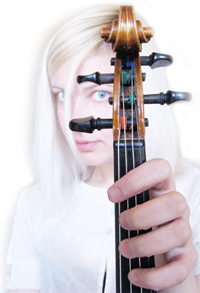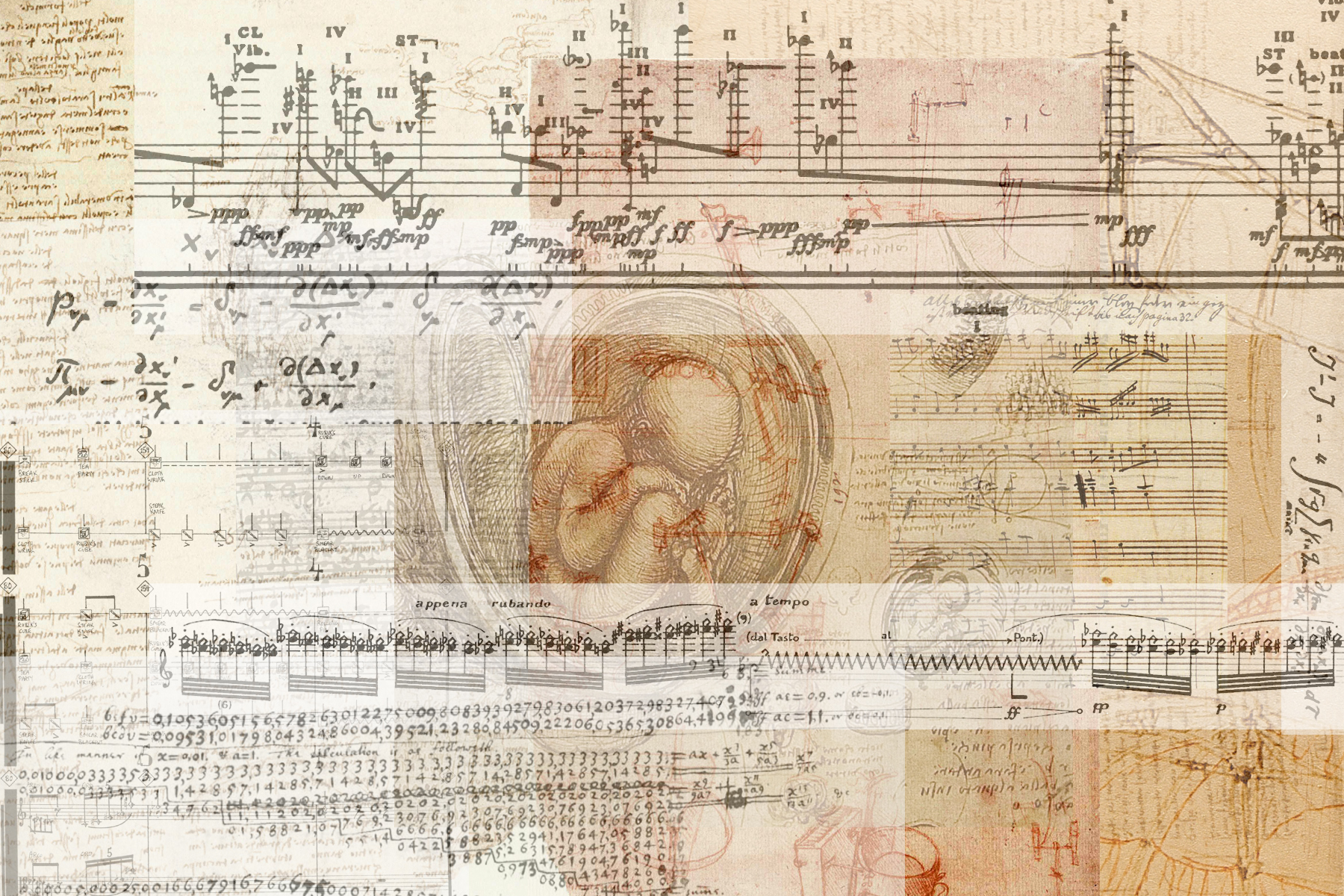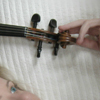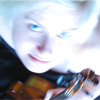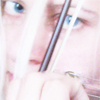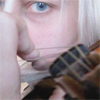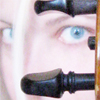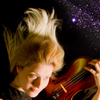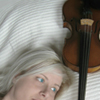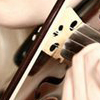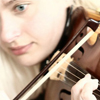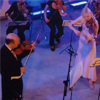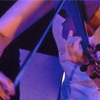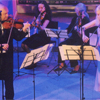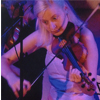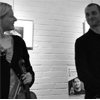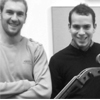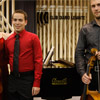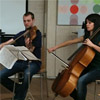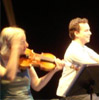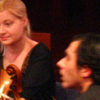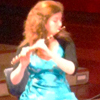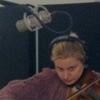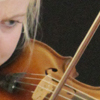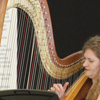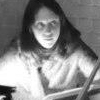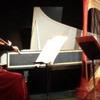![]() Search and Research. A Reflection on Knowledge and Art.
Search and Research. A Reflection on Knowledge and Art.
[an open text, a work in progress - subject to alteration and updating as the process of thinking and re-thinking on the subject and questions at hand continues]
François Beukelaers said about the process of beginning the new work that "the most important thing for an actor is not to know". Not to know – this is where every artist starts its project, journey and work. Translatable to any new beginning, in any discipline, it is from not knowing that one has to come to a clear, refined thought and a way to express it. In order to get there one has to experiment, reflect, search, research, and translate.
In the pursuit for being better in expression, without noticing, artists, especially performers, unnoticeably slipped into the chase for technical perfection –to become the fastest, most precise, most skillful… Loosing the track of search and research for expression of meanings and feelings, but rather taking, without notice, inherited knowledge of meanings. In this run to catch up and chase to rank ourselves, and others (among a lot of us), we start pursuing the “measurable” (technical) and start losing the track of the essence – of search for the substance.
If one is to search for a definition of “research”, it could be as simple as looking up the word in the dictionary.
research |rɪˈsəːtʃ, ˈriːsəːtʃ|
noun
(1):the systematic investigation into and study of materials and sources in order to establish facts and reach new conclusions.
synonyms: investigation, experimentation, testing, exploration, analysis, fact-finding, examination
verb
(1):investigate systematically; (2): Discover or verify information for use in (a book, programme, etc.)
synonyms: investigate, conduct investigations into, study, enquire into, look into, probe, explore, analyse, examine, scrutinize, inspect, review, assess
[Origin: Late 16th century: from obsolete French recerche (noun), recercher (verb), from Old French re- (expressing intensive force) + cerchier 'to search'.]
- Cambridge dictionary:
noun: a detailed study of a subject, especially in order to discover (new) information or reach a (new) understanding
verb: to study a subject in detail, especially in order to discover new information or reach a new understanding
- Merriam-Webster dictionary:
noun: (1) careful or diligent search; (2) studious inquiry or examination; especially : investigation or experimentation aimed at the discovery and interpretation of facts, revision of accepted theories or laws in the light of new facts, or practical application of such new or revised theories or laws; (3) the collecting of information about a particular subject
verb: (1)to search or investigate exhaustively <research a problem>; (2)to do research for <a book>.
Of course, looking up of such a familiar word in the dictionary seems redundant, but sometimes, as we hear the word so many times it becomes ubiquitous, we need a reminder to listen it. Not just to know what it means, rather to understand what it means. In fact, the very preparation for this simple writing of a meaning of the word already required a research. Admittedly, it was not a research that will bring excessive new knowledge, but it is a research that will reassure and therefor produce a more articulated statement of a thought. And that is what research should be - an essential element of articulating any thought, idea and/or action. How can then its importance and presence in Arts ever be questioned? It is the most detailed look into how best, and most argumentatively one person can transfer their conviction. Knowledge and information we come across during the process of research shapes and hones our initial idea through extensive thinking and organization processes, and through different personal methodologies. It is then that this idea is presented in a manner artists sees best fit – a performance and exhibition of the thought, of belief.
The red thread I have been noticing in conversation with artists revolves around the facts of “theory” and the period of time and dedication to “the one subject”, answering only one particle, one question being a limitation (in respect to what research is). But isn’t that what a masterpiece requires? Time.
Time gives an option to reflect, question, examine, re-examine, refine… to understand, in order to use knowledge and create. The collected information, even if the outcome is just one “tiny speck”, one subject, comes from thousand topics, all entwined. The wide aspect of which can be later used, as knowledge, even if it was a discarded finding during the initial subject of research.
In 1498 Leonardo Da Vinci finished "The Last Supper". He started working on it in 1495. It is considered that this is one of his first masterpieces of such magnitude. But looking into the timeline of his life, into the work and investigations was it only two years? He arrived in Milan in 1482 leaving, unfortunate, years of Florence behind, ready to do great deeds. And yet it was not until 16 years later that this happened, certainly not for the lack of talent or desire. We rarely look in those 16 years, but it is during this period, during hardship, discouragement, setbacks and failed opportunities for each of which he conducted countless studies, sketches, and inventions of new processes of casting that he continued and never for a moment stopped. All the time, he is studying, sketching, prototyping, drawing... until it everything adds up for The Last Supper – is not that the ultimate artistic research, collection of knowledge for expression of felt and thought?
Thinking from this perspective, the research is rather help – the frame inside of which there is stability, even comfort, for taking time to do and build further. But one should not be deluded, as along the path of a true research the doubts, insecurities, questioning are all equally present.
However, it seems hat at some point we became very concerned with semantic and normative of "how to describe", "how to categorize"... Holding to a notion of what holds grater importance and significance, which discipline and what is entitled to being described as research. It is maybe easiest to describe this “fashion of thinking” through words of Julian Klein "Whether artistic thirst for knowledge is acceptable as a reason to call an investigation also "research", depends obviously on the question, what types of knowledge assemble under the concept of cognition, or which types of cognition form the category of knowledge"
In the Glossary of Statistical Terms from 2008 UNESCO defines research as following "any creative systematic activity undertaken in order to increase the stock of knowledge, including knowledge of man, culture and society, and the use of this knowledge to devise new applications". Let us read that again: any creative systematic activity undertaken in order to increase the stock of knowledge, including knowledge of man, culture and society, and the use of this knowledge to devise new applications. Is not that exactly what art and artistic research do?
Although questions that draw interest for research are often similar, for scientists and artists, one are (with merit) praised for their diverse, out of the box thinking. Their creative thinking leads them to ideas, thought and brings them to result that become norms, as often they are applicable and "material" (tangible). While art, considered being something that deals with feelings is somewhat more abstract, is still being disputed for its merit of using the word research. But would we be able to exist without the abstract, without the "felt" part of society? Being that it can be implied that it is a necessity, why would its importance and credited place in researching and scientific be neglected. As scientists are artists, so are the artists scientists. Is the difference of an outcome, of a record, all that it takes for one to be disregarded, stripped of its place? Is the artist, being the one doing the research, far from having equally intensive and important view on topics? Their different point of view, the experience in practice can only produce more, different, ways and possibilities to look for and create a meticulous methodology of research. For as an artist you are a discoverer. Meaning that you search and research. Articulating that action is not a limiting factor but rather an awakening for perception and better sensitivity to apprehending as much as possible from each experience, related in any way an artist, a researcher seems fit or helps the growth of his work.
The outcomes and the fact of the “felt” component seem to be what makes both artists and scientists and society frown the subject. First, for seemingly emphasizing on the theoretical, "scientific" that takes away from expressive, felt, abstract component, the “artistic freedom”, and later for trying to fit something seemingly free, wild and abstract into the molds of concrete, applicable knowledge. But are not they both silly, for even if taken as subjectively tainted, the outcome, the artwork of artistic research can become a source for another, a source of information. To be used in further thinking - whether agreed or disagreed on. An information that therefor becomes knowledge, both felt and applicable.
If it is considered that a research is setting guidelines through its findings and methodology in the way that any other researcher can pick up and continue, one might say that the, inevitable, subjective component of artist(ic) in artistic research can make this difficult. But is that absolutely right? Although the official term of their work didn’t involve titles as “research” or “artistic research” one can for a moment think about Anna Pavlova and Maya Plisetskaya. Pavlova searched and acquired everything possible (including material, composition, participated in creating choreography with Mikhail Fokine…) for “The Dying Swan” to come to life as a piece of art, making it her signature ballet artwork, performance. And then, using this as the foundation, Plisetskaya, reportedly spending months and months in observing swans and especially a swan that was dying, took and perfected each move, of each muscle, perfecting the hand movements to be as close to wings, taking in this way the work to the next step and setting a new boarder line. If they kept close and detailed notes, wrote methodology, trajectory and timelines of their findings and how they applied it further, would not we be tempted to see this as a complete artistic research? Research with the possibility to be continued, the one based on feelings and yet with meticulous work and detailed strategy brought to its final “formula”. The fact that the formula is something consisted of abstract, beauty and feelings, should be considered as a plus. Because no matter how “subjective” artists reflection could be, if done with honesty to work, an artist will always also look from outside, objectively, critically at numerous phases of work, in order to come up with the true result that projects the idea, rather them themselves. This novelty of the artist being the one conducting the research - his role, usage of, among other, methodologies, surveys, lectures, artistic experience, collecting data and how objective the outcome can be because of the subjective component, one must consider that “the artist”, while always staying true to all what it stands for, appends to its meaning significance of those "the scientist" and "the researcher", and all the responsibilities they hold. This quantitative collection of information becomes qualitative source, which we learn to understand and interpret, with effort of being as objective as possible. Not bending the findings to meet the idea, but rather accepting that the idea will undergo evolution, through applying the collected knowledge. As does any scientific research. As much a research could be considered a clean, scientific approach, it should not be forgotten that it is the open mindedness and the “out of the box” perception of a scientist what makes the translation of ideas into usable information. So a scientist is in fact an artist. And vice versa – an artists is a scientist of translating sensible, and sharing this translation (via performance and exhibiting of the artwork). Therefore, the research does not make art less “artsy”, just as open mindedness doesn’t make science less “sciency”. It in fact makes obvious the equal importance in balancing tangible and abstract, until the mixture becomes just perfect to be expressed. And as it just happens, sometimes this expression takes form as “E=MC2” and sometimes as  and sometimes as…
and sometimes as…
Furthering the thought about another possible benefit of the track of artists’ process of work and research goes into the reflection of understanding their position and acceptance to show and adjust when confronted with “being wrong”. It was during one very moving and thought provoking lecture/open talk of Chokri Ben Chikha about his work (and research) “The Human Zoo as (Re)Search Tool” that this became more articulated thought, at least on the personal level. Of course his work and artistry was, and is, remarkable on its own. But a specific moment in his talk, in fact a moment in his research, has had the greatest impact on me personally. It could be a possibly brilliant reason and argument on why art, and artistic research, are the knowledge needed for qualitative development of society, and humanity. He talked about a moment in his research and preparation of “The Truth Commission” performance where together with other performers, he arrived to a comical (or rather very serious) situation in which he himself became what he was researching, and criticizing. And then – they rearranged “the script” and added the “incident”, putting him (but in fact the society) on display, all for the sake of transmitting as profoundly and sincerely the thought and work. It is this willingness to stand bare in front of others, without manipulating the facts, why this had such a big impact. The fact of this importance for truthful representation, sincere transmission of an idea artists aspire to, and which they learn throughout the process of dealing, doing and thinking of art, is what seems as a way towards overall better environment for living.
I personally am a firm believer that Art is knowledge. Through art we learn of abstract, of feelings, of thoughts, of ideas. In the same time the very existence of this art means that there has been labor and extensive work on this abstract, as so it would come to be, to exist. So there is a tangible, physical element of art that can’t be disregarded. Taking these two aspects, thinking and doing, it further means that art, and dealing with art, embodies development of thought, willpower, aesthetics, knowledge of good and bad, stamina, work ethics – in other words the ultimate toll of and for education. It is a vast source of information we need in order to prosper in quality manner of living.
From all above mentioned, and from my personal point of view, it becomes easier to understand that for a performer, and not only a performer, I would dare, the process of research is an important aspect of preparation. It can be very tricky to approach a musical piece, both from traditional and contemporary repertoire. The existence of recordings, which is so precious for our cultural legacy, can sometimes be damaging for a performer – drawn by just experience of hearing, one forgets to research. Therefor their performance, their interpretation does not represent a relationship between composers thought and their own, but there is an intermediary influence of somebody else, some other interpretation. This is where the research becomes crucial. Our musical decision has to fall on knowledge and information, both on music and on emotions, and this is where our interpretation is born. The difficulty of contemporary music does lie in no empirical sound reference, but for me, this is the challenge most worthy taking – as the creation of interpretation requires deep reflection, conversations with composer, with music itself, and with self. Thus improving and ameliorating yourself, seemingly just for this one piece, but in reality you are taking a non-reversible step into your better self. The research is what makes a musical thought be strong and confident, and what makes then this musical idea transcends more convincingly to the audience.
At this point it seem that art and research are truly bound together - a unity of scientific and artistic – a detailed research, with data collection, in-depth analysis of information, experiences, specially constructed surveys with a goal of having an artwork as an outcome, whilst relying in simultaneously on expression of felt, imagination, creativity. Followed by the inevitable byproduct of writing about the process becomes a plus, as it becomes an essential read that offers information on the process as well as thought, that can serve to the artist himself but furthermore to others who are looking for answers or ways to go further in ideas that surpass the existing. In the same time there is a great responsibility to not make it an act of priesthood and not make the process “elitist”. Not to make a new vain pursuit, but rather try and keep emphasis on looking for the essence, for the foundation, which the knowledge and art can be built, and with it, society.
Eugene Ysaÿe said "More than other men, artists are impelled to seek happiness where it does not exist". And artists do seek, search, research... and more often then not, they do find it. Why should not all of humanity strive to search for “happiness”, even the sad one, leading ultimately all to be, and become, artists in living? 
• ask for a pdf or just share your thoughts+comments = please start a conversation!
Beside here, you can also visit (and follow updates) on Soundcloud.
"Tell me about... " - following the footsteps of thoughts of exceptional artists from Dejana Sekulic on Vimeo.
More details and information of this project are going to be published soon on: www.dejanasekulic.com
This video preview is an interlude and was a spark of inspiration for initiating and starting up artistic research.
The main concept of this artistic research (or rather artistic journey) is dealing, expressing and searching for new/extanded technique, technical expressions, contemporary music lines and meaning, thus broadening violin technique and repertoire. You will be able to follow updates and if you would like, you could also take part in some parts and performances of this project.
Follow also the video updates on vimeo.com channel: vimeo.com/dejana
Please don't hesitate to send comments, thoughts, remarks, inquiries and/or any question you might have to contact [at] dejanasekulic.com
-


-

-

-

-
 Creation in progress. More information coming soon.
Creation in progress. More information coming soon. -

-

-

-
 Full description and information on this project will be soon updated.
Full description and information on this project will be soon updated. -

-

-

-

-

-

![]()

